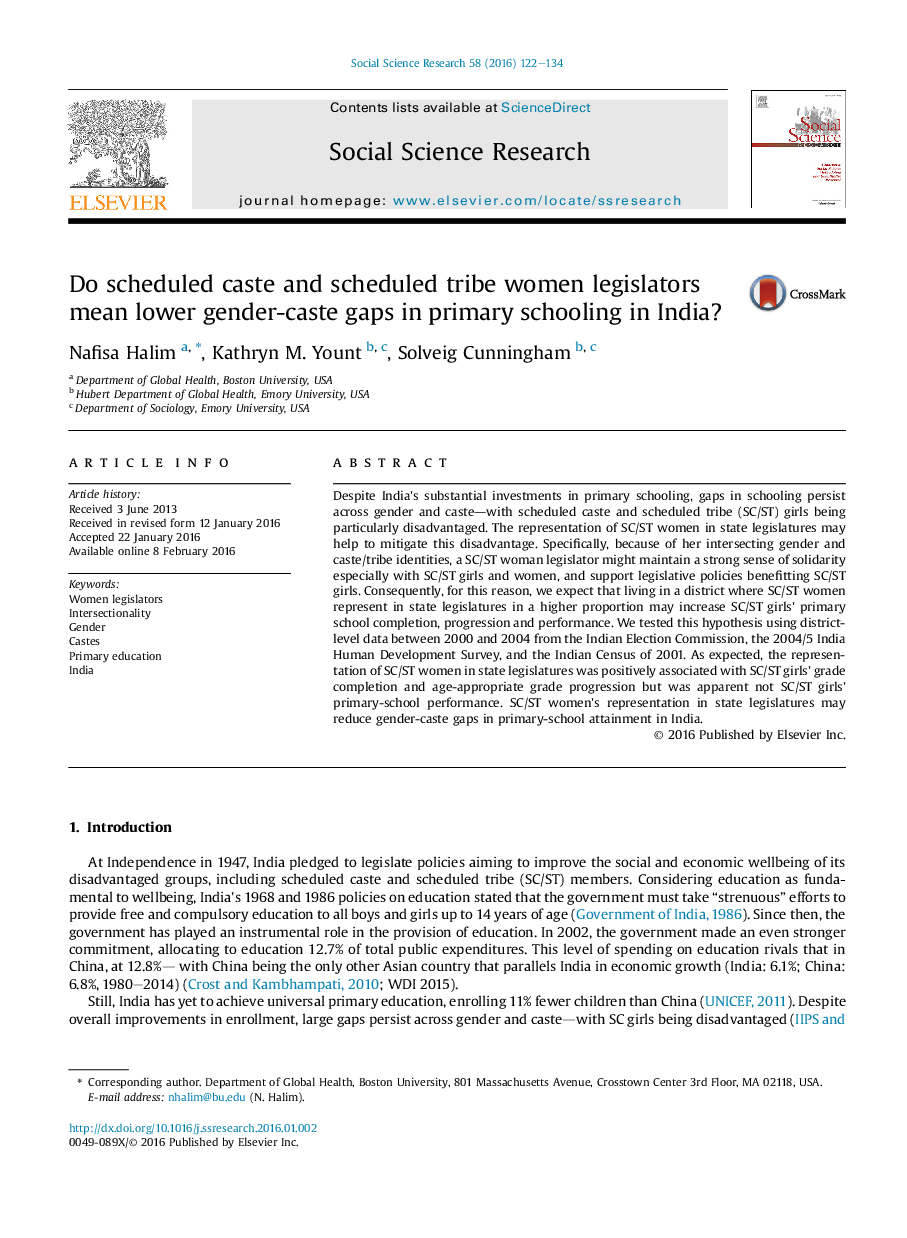| Article ID | Journal | Published Year | Pages | File Type |
|---|---|---|---|---|
| 955581 | Social Science Research | 2016 | 13 Pages |
Despite India's substantial investments in primary schooling, gaps in schooling persist across gender and caste—with scheduled caste and scheduled tribe (SC/ST) girls being particularly disadvantaged. The representation of SC/ST women in state legislatures may help to mitigate this disadvantage. Specifically, because of her intersecting gender and caste/tribe identities, a SC/ST woman legislator might maintain a strong sense of solidarity especially with SC/ST girls and women, and support legislative policies benefitting SC/ST girls. Consequently, for this reason, we expect that living in a district where SC/ST women represent in state legislatures in a higher proportion may increase SC/ST girls' primary school completion, progression and performance. We tested this hypothesis using district-level data between 2000 and 2004 from the Indian Election Commission, the 2004/5 India Human Development Survey, and the Indian Census of 2001. As expected, the representation of SC/ST women in state legislatures was positively associated with SC/ST girls' grade completion and age-appropriate grade progression but was apparent not SC/ST girls' primary-school performance. SC/ST women's representation in state legislatures may reduce gender-caste gaps in primary-school attainment in India.
